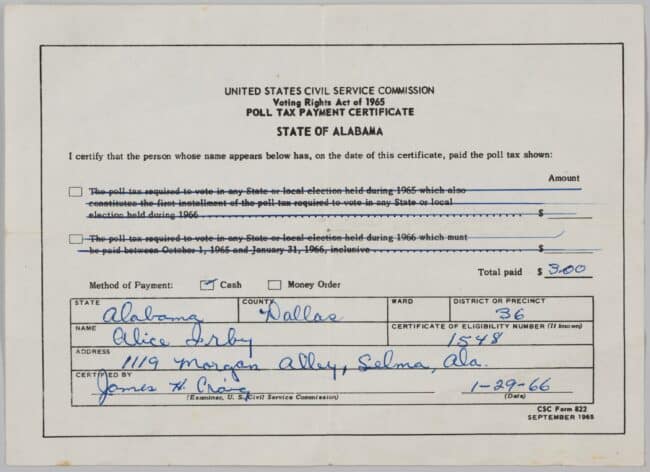
A poll tax certificate issued to Alice Irby of Selma, Alabama, by the U.S. Civil Service Commission, Voting Rights Act of 1965. Collection of the Smithsonian NMAAHC, gift from the family of Alice Irby.
The 24th Amendment to the Constitution of the United States was ratified, officially abolishing the poll taxes in the South that disenfranchised African Americans (and some poor whites) from exercising their constitutional right to vote in federal elections. The language is below.
Amendment XXIV
Section 1.
The right of citizens of the United States to vote in any primary or other election for President or Vice President, for electors for President or Vice President, or for Senator or Representative in Congress, shall not be denied or abridged by the United States or any state by reason of failure to pay any poll tax or other tax.
Section 2.
The Congress shall have power to enforce this article by appropriate legislation.
The poll tax, a fee voters had to pay to vote, was one of several Jim Crow devices created to deter the political rights and influence of African Americans in southern states. It took several years, and more violence against Black voters, before the state and local poll taxes were ruled illegal. For example, Vernon Dahmer was murdered in Mississippi in 1966 because he offered to pay the local poll tax for voters who could not afford to.
Decades after the eradication of poll taxes, the fight for voting right continues. New restrictive laws include photo ID requirements, denial of restoration rights to convicted felons, and cutbacks on early voting and hours. In 2013, the U.S. Supreme Court removed Section 5 of the Voting Rights Act — the key provision that would protect voters against these new restrictive measures.
Find resources to teach about the long and ongoing struggle for voting rights below.

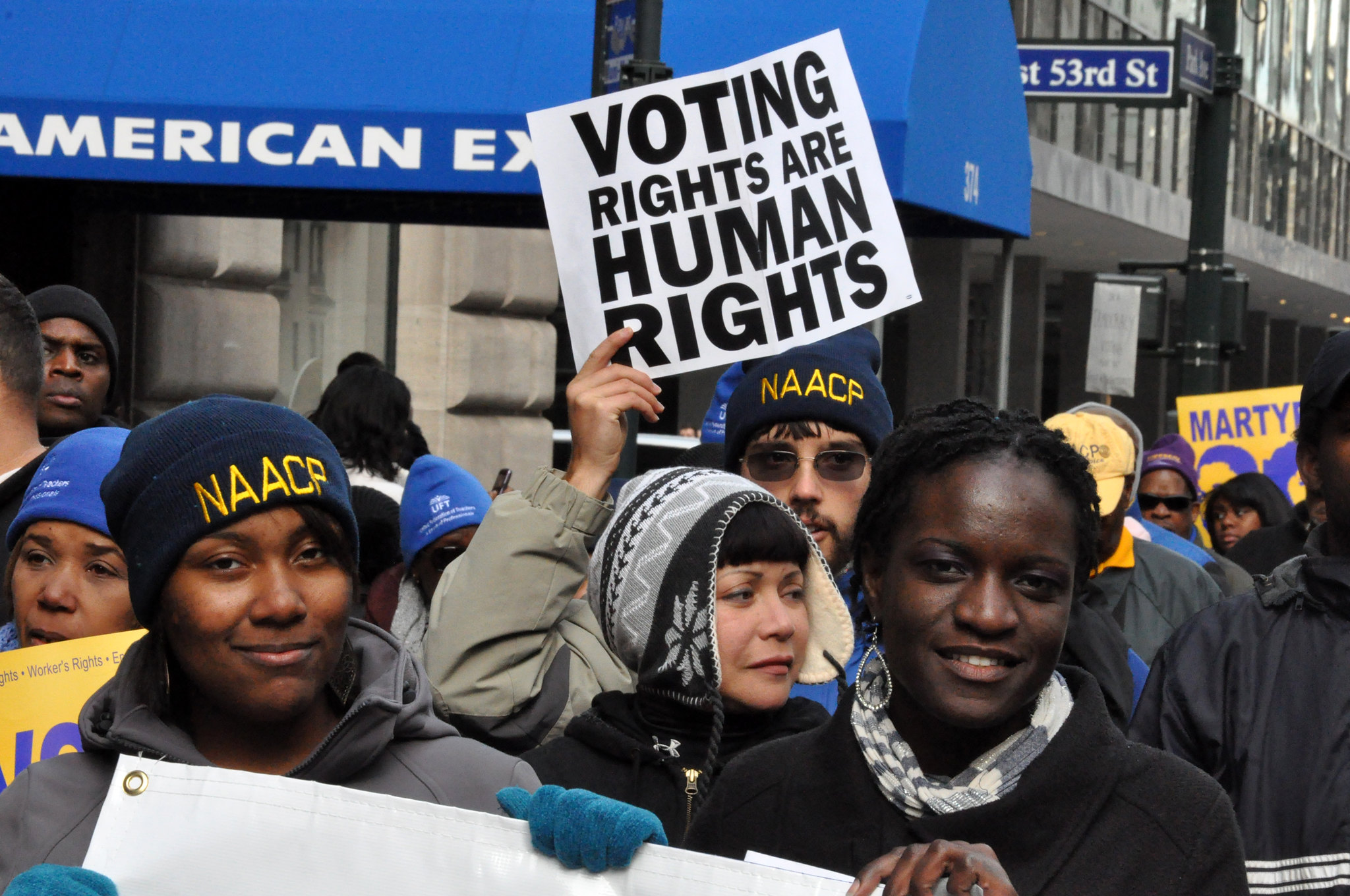
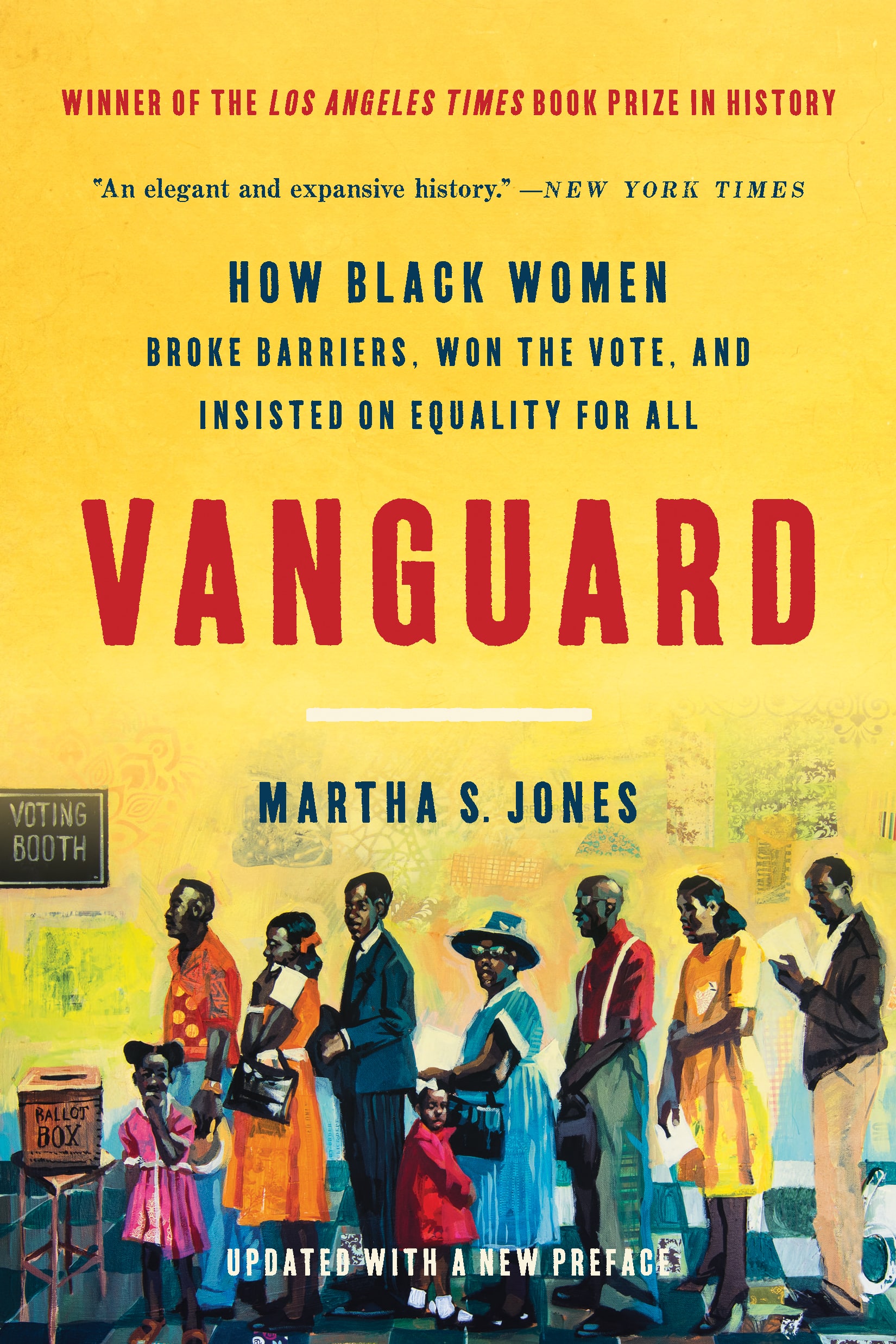
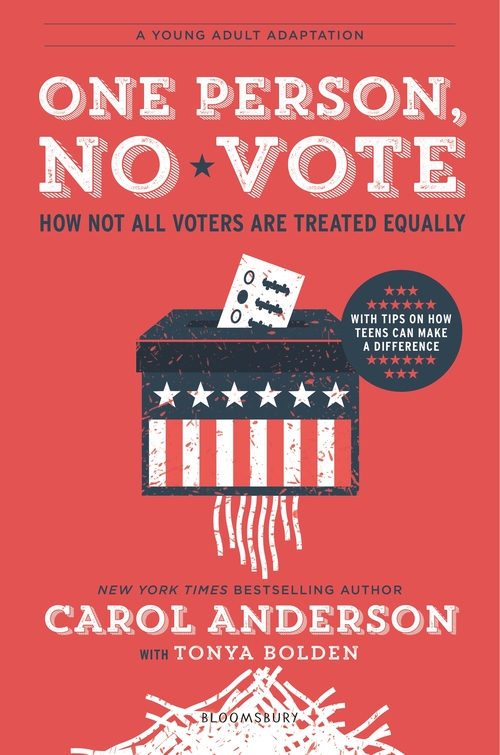
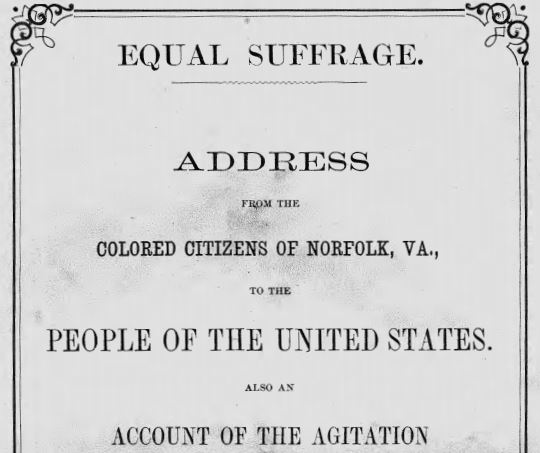
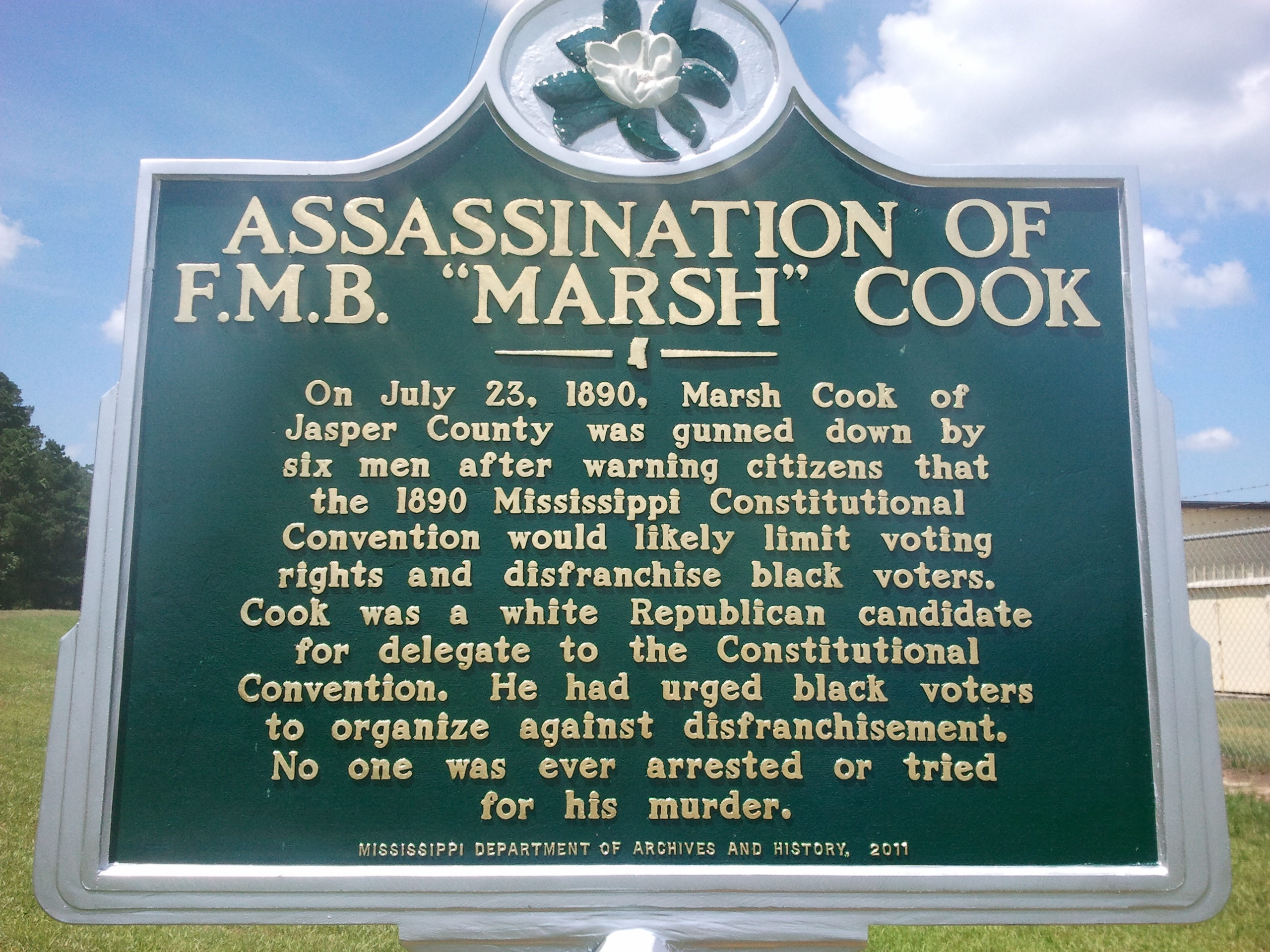
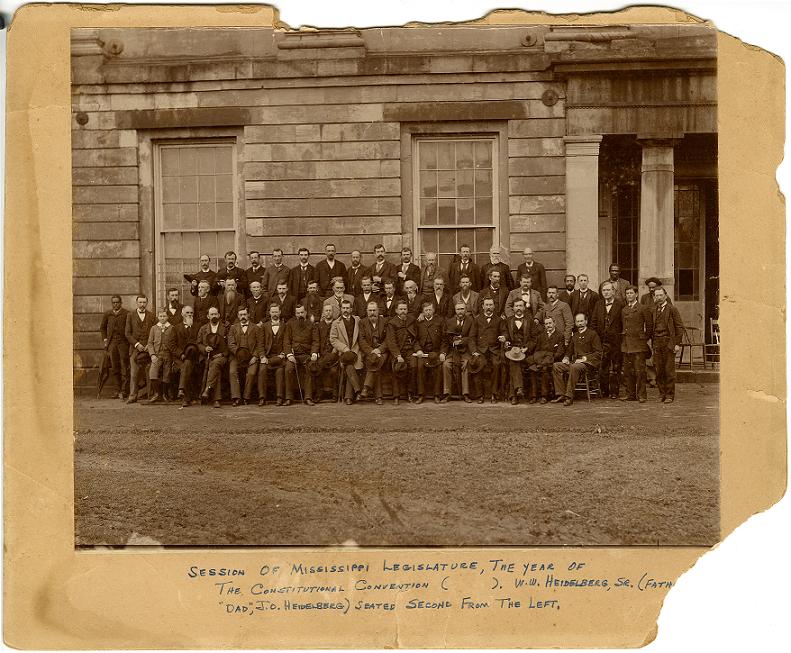
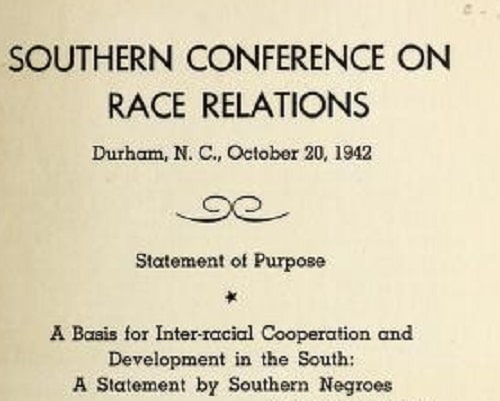

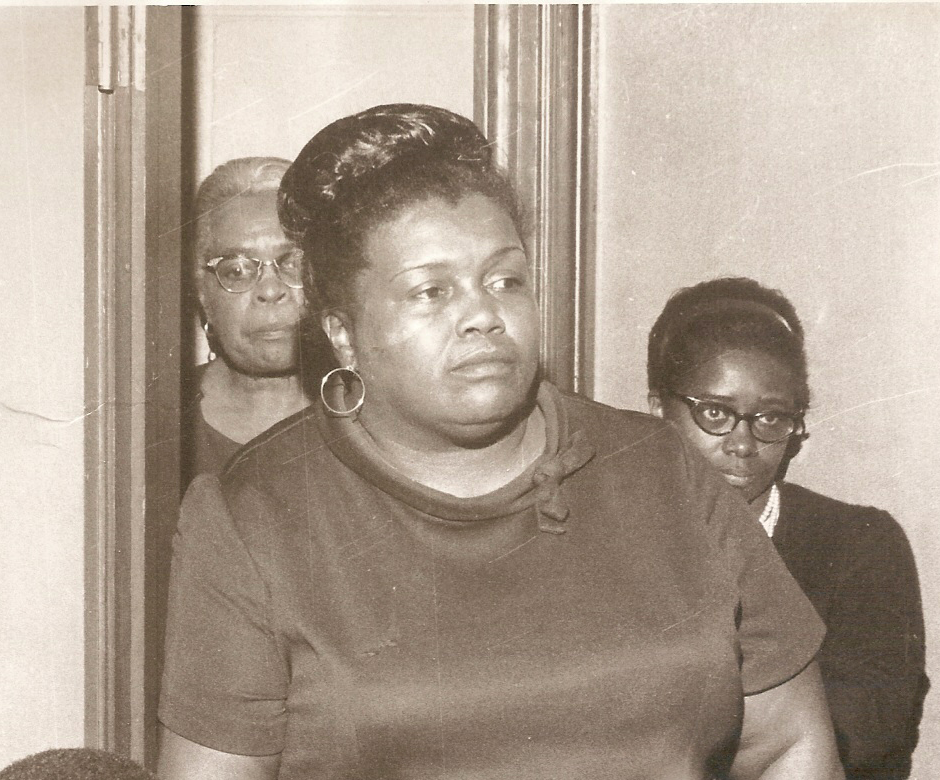





Twitter
Google plus
LinkedIn